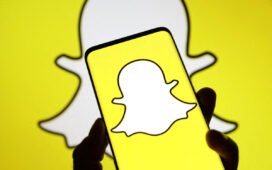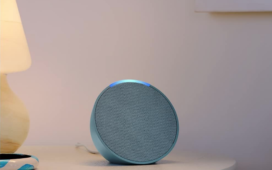It’s been a year since Meta pushed out Threads in an attempt to take on the platform now known as X. At the time, Mark Zuckerberg said that he hoped it would turn into “a public conversations app with 1 billion+ people on it.”
Meta’s timing was good. Threads launched at a particularly chaotic moment for Twitter, when many people were seeking out alternatives. Threads saw 30 million sign-ups in its first day and the app has since grown to monthly users, according to Zuckerberg. (X has monthly users, according to Elon Musk.)
But the earliest iteration of Threads still felt a little bit broken. There was no web version, and a lot of . The company promised interoperability with ActivityPub, the open-source standard that powers Mastodon and other apps in the fediverse, but integration remains .
One year later, it’s still not really clear what Threads is actually for. Its leader that “the goal isn’t to replace Twitter” but to create a “public square” for Instagram users and a “less angry place for conversations.”But the service itself still has a number of issues that prevent it from realizing that vision. If Meta really wants to make that happen, here’s what it should change.
Fix the ‘For You’ algorithm
If you follow me on Threads, then you probably already know this is my top complaint. But Meta desperately needs to fix the algorithm that powers Threads’ default “For You” feed. The algorithmic feed, which is the default view in both the app and website, is painfully slow. It often surfaces days-old posts, even during major, newsworthy moments when many people are posting about the same topic.
It’s so bad it’s become a running meme to post something along the lines of “I can’t wait to read about this on my ‘For You’ feed tomorrow,” every time there’s a major news event or trending story.
The algorithmic feed is also downright bizarre. For a platform that was built off of Instagram, an app that has extremely fine-tuned recommendations and more than a decade of data about the topics I’m interested in, Threads appears to use none of it. Instead, it has a strange preference for intense personal stories from accounts I’m entirely unconnected to.
In the last year, I’ve seen countless multi-part Threads posts from complete strangers detailing childhood abuse, eating disorders, chronic illnesses, domestic violence, pet loss and other unimaginable horrors. These are not posts I’m seeking out by any means, yet Meta’s algorithm shoves them to the top of my feed.
I’ve aggressively used Threads’ swipe to try to rid my feed of excessive trauma dumping, and it’s helped to some extent. But it hasn’t improved the number of strange posts I see from completely random individuals. At this moment the top two posts in my feed are from an event planner offering to share wedding tips and a woman describing a phone call from her health insurance company. (Both posts are 12 hours old.) These types of posts have led to blogger Max Read dubbing Threads the “” because they make it feel as if everyone is “suffering some kind of minor brain damage.”
Stop avoiding news, politics and anything “potentially sensitive”
Look, I get why Meta has been cautious when it comes to content moderation on Threads. The company doesn’t exactly have a great track record on issues like extremism, health misinformation or genocide-inciting hate speech. It’s not surprising they would want to avoid similar headlines about Threads.
But if Meta wants Threads to be a “public square,” it can’t searches for topics like COVID-19 and vaccines just because they are “potentially sensitive.” (Instagram head Adam Mosseri claimed this measure was “temporary” last October.) If Meta wants Threads to be a “public square,” it shouldn’t political content from users’ recommendations; and Threads’ leaders shouldn’t assume that users to see news.
DMs, DMs, DMs
A year in, it’s painfully clear that a platform like Threads is hamstrung without a proper direct messaging feature. For some reason, Threads’ leaders, especially Mosseri, have been adamantly opposed to creating a separate inbox for the app.
Instead, users hoping to privately connect with someone on Threads are forced to switch over to Instagram and hope the person they are trying to reach accepts new message requests. There is an in-app way a Threads post to an Instagram friend but this depends on you already being connected on Instagram.
Exactly why Threads can’t have its own messaging feature isn’t exactly clear. Mosseri has suggested that it doesn’t make sense to build a new inbox for the app, but that ignores the fact that many people use Instagram and Threads very differently. Which brings me to…
Decouple Threads from Instagram
Meta that the reason why it was able to get Threads out the door so quickly was largely thanks to Instagram. Threads was created using a lot of Instagram’s code and infrastructure, which also helped the company get tens of millions of people to sign up for the app on
But continuing to require an Instagram account to use Threads makes little sense a year on. For one, it shuts out a not-insignificant number of people who may be interested in Threads but don’t want to be on Instagram,
There’s also the fact that the apps, though they share some design elements, are completely different kinds of services. And many people, myself included, use Instagram and Threads very differently.
A “public square” platform like Threads works best for public-facing accounts where conversations can have maximum visibility. But most people I know use their Instagram accounts for personal updates, like family photos. And while you can have different visibility settings for each app, you shouldn’t be forced to link the two accounts. This also means that if you want to use Threads anonymously, you would need to create an entirely new Instagram account to serve as a login for the corresponding Threads account.
It seems that Meta is at least considering this. Mosseri said in with Platformer that the company is “working on things like Threads-only accounts” and wants the app to become “more independent.”
These aren’t the only factors that will determine whether Threads will be, as Zuckerberg has speculated, Meta’s next 1 billion-user app. Meta will, eventually, need to make money from the service, which is currently advertising-free. But before Meta’s multibillion-dollar ad machine can be pointed at Threads, the company will need to better explain who its newest app is actually for.















